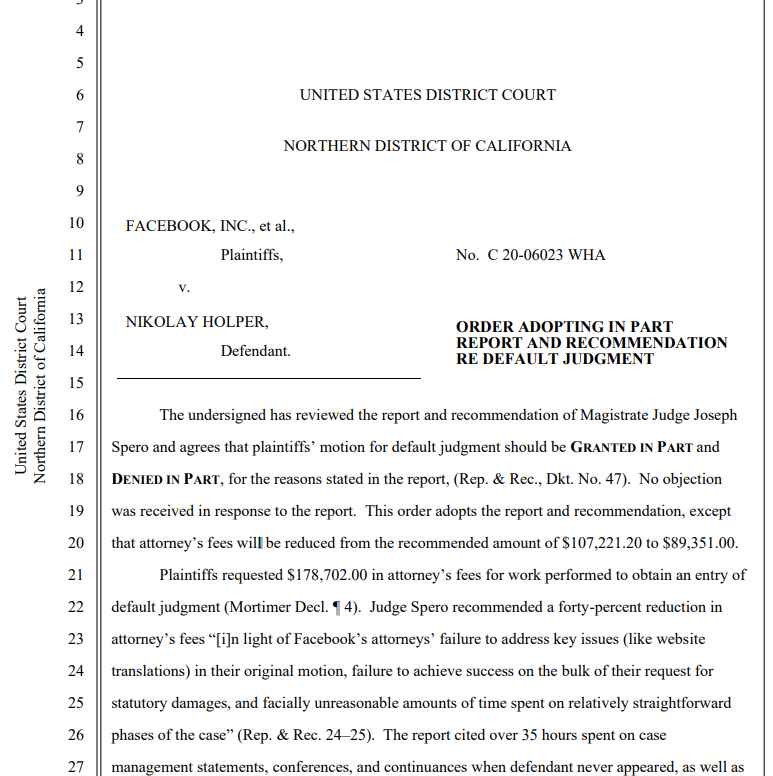Meta was successful in obtaining a court judgment against a Belarusian programmer last week. The programmer was accused of delivering millions of automated likes to the Instagram accounts of his clients by using a network of bots and Instagram accounts that he controlled.
Holper was ordered by judge to pay Meta damages of just under $200,000, comprised of the following: $100,000.00 in statutory damages for cybersquatting; $89,351.00 in attorney’s fees; and $10,184.44 in expenses, for a grand total of $199,535.44. The court agreed with a magistrate who had made earlier suggestions in September [PDF] to issue a ruling against Holper for breach of contract of Instagram and Facebook’s terms of service, as well as infringements of the Computer Fraud and Abuse Act, and also offered Facebook’s request for a protective order. In addition, the judge found that Holper had violated the Computer Fraud and Abuse Act. Magistrate Joseph Spero suggested cutting Meta’s request for attorney’s fees by forty percent; however, Judge Alsup reduced them in half.”

According to the first complaint (PDF), which was submitted in 2020 , the programmer was accused of having “developed an inauthentic experience for Instagram users and sought to falsely influence Instagram users for his personal gain.”
According to the assertion made in the complaint, “Some of the Instagram profiles utilized by [Holper] were responsible for more than 8 million likes over the period of only two days.”
An angry comment, supposedly written by Holper, was attached to the filing that was made by the company that was formerly known as Facebook. The post was published on an online forum known as ra.by, and it complained that the platform had sent messages to certain users linked to him for infractions of Instagram’s terms of service. According to the post, the messages said things like “no one will be unblocked until Holper’s sites are closed.” The following statement was also included on the post: “These flagrant activities represent the actual character of Western services and their attitude towards their users.”
Information security specialist, currently working as risk infrastructure specialist & investigator.
15 years of experience in risk and control process, security audit support, business continuity design and support, workgroup management and information security standards.
